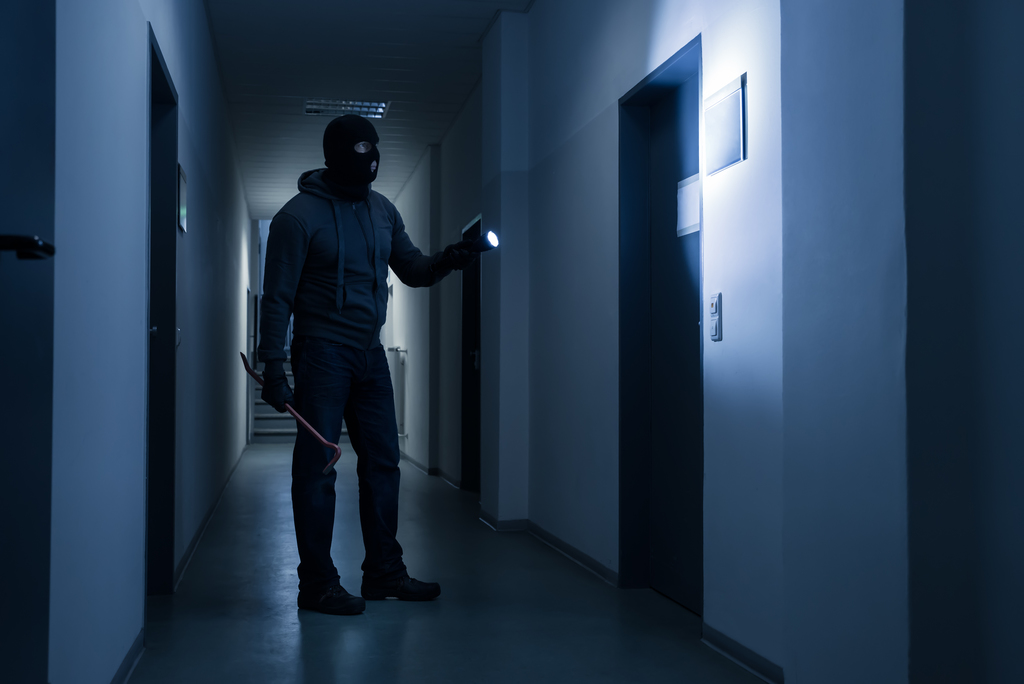
Brian Sims
Editor

Brian Sims
Editor
Andy Beale seeks to impart some practical guidance on how security function management should perform, while at the same time providing advice on ways in which to ascertain whether or not a security company is a good employer. The security sector is somewhat broad in nature and that can make quality assessment a little more difficult, but it’s certainly not an impossible task
The management of any security function appears straightforward when things are proceeding smoothly and everything’s going to plan, but in today’s information-saturated world it’s all-too-easy to drown in the plethora of security management standards, guidance documents and sector-specific advice that’s so readily available.
There isn’t the space available here to list all of the professional references and standards that security sector managers should be working towards because they’re considerable in number. In essence, the legislation and Best Practice guidance covers planning and managing physical security resources, cyber crime, aviation and maritime security, retail loss, fraud investigations and comprehensive preparedness guides on what to do in specific emergencies and for business resilience purposes.
There’s homeland security and National Counter-Terrorism Security Office guidance about what to do when confronted with extraordinary situations. General business management legislation and guidance – such as the ISO 9000 suite for quality management, PAS guidance on management systems, documents on numerous Human Resources procedures and occupational health-focused ISO standards – will be applicable. Ultimately, all should be viewed in the context of the security function being provided.
When looking at specific security industry organisations, we entrust their senior leadership to manage the business and employees’ interests by implementing all parts of the relevant guidance documents and then organising an equitable working environment for members of staff to deliver the particular security function.
However, if the security business isn’t well managed, it may not be an enjoyable environment in which to work. There will likely be high staff churn, low productivity, equipment failures, frequent client complaints and a tendency towards accidents at work or redundancies as turnover correspondingly reduces. These are all tell-tale signs when determining if a security company is a good employer or not. Given the saturation of online data and social media whistleblower-style accounts, it’s now much easier to access the kind of information needed for an assessment.
Duty of Care
The Duty of Care provided by the Health and Safety at Work etc Act 1974 aims to reduce dangers in the workplace. Often, it’s poor management contravening legislation and guidance that causes the most problems. Management in this sense references anyone who has formal responsibility for planning, organising or controlling something in a business.
In ‘high risk to life’ security professions and environments, wherein people step forward to deal with potential violence or death, the poor management of a function or a poor manager is a seriously undesirable distraction.
Those of us who undertake security-centric roles understand the threat risk matrix. We understand the consequences and we should be results-focused. If not, we have no business working in this industry. Put simply, managers and/or leaders who are ‘micro-managing’ or merely reiterating rules as those under their instruction attempt to deter, detect, delay and respond to incidents are counter-productive to successful security outcomes.
In all ‘high risk to life’ security professions, daily management interactions are between people. It’s the people who are important because it’s those people – with the right tools, processes and training to hand – who’ll serve to produce a successful security outcome.
When the focus turns towards security guarding and close protection work, poor performance can mean that people may die. The manner in which individuals are managed, motivated and deployed, coupled with the availability of skills and knowledge training, will help to shape the business strategy. It’s not all about pay levels or the equipment or processes in place. Ascertaining whether or not an organisation implements the entire suite of appropriate legislation is a starting point. Seeing how sector-specific guidance is applied is also a good indicator of security company performance.
Procurement process
If you’re a client seeking a security provider or a freelance close protection operative, security officer or consultant selecting a new security solutions company with which to work, there’s a necessity to look deeper. A simple rule of thumb is to appraise the security company’s training provision, employee assistance schemes and shift patterns. Check out its social media posts and then take a deep-dive into ex-employees’ comments. If available, scan client lists and try to form a sense of how work colleagues are managed. How does the client interface operate? Search for any notable ‘successful outcomes’.
The traditional security manager focuses on fortress management: a safe, secure, warm kind of management based on ‘looking outwards’. They manage their staff to their own dedicated boundaries and objectives wherein each department/function is competing and creating barriers rather than operating in synergy. This is a real problem when the work is dynamic and risky (as is often the case with guarding or close protection, simply because those disciplines have many intricate fast-moving processes that depend on other elements working smoothly in tandem).
In effect, all work combined is just a process orchestrated by a person. People have a purpose at work that’s generally based on principles and values. Like police officers, security staff are held to a higher standard of expectation in the working environment. Problem solving in the security world can involve a lot of people and have an impact on process within a very short space of time. Any changes in work procedure, then, must be communicated very quickly indeed.
It’s important that the managers of any security function are quick to adapt to rapidly changing threats and actual or perceived risks. If adaptation is slowed down by managers rather than them actively encouraging or otherwise supporting it, this can have grave consequences.
The essence of problem solving in a security function is teamwork coupled with decisive leadership exhibited by managers using their experience and demonstrating conceptual awareness of the problem. It’s really all focused on the application of common sense (a commodity often somewhat lacking in traditional fortress management).
Consensus and participatory management are key to success when the risk posed to life is high. This doesn’t mean to suggest ‘management by committee’ or some sort of voting process. All forms of security management require key people to lead task-focused teams and often having to base the decisions they make with much less than the full picture in front of them. A successful security outcome will result if management leads rather than commands, while in parallel empowering individuals to act with a constancy of purpose.
Question of trust
It would be remiss not to examine the subject of trust as this is fundamental to the functioning of security. Clients need to trust their security detail, while those providing the security service need to trust not only their colleagues, but also the security company support functions per se.
Many business commentators state that, without trust in the workplace, it’s virtually impossible for an organisation to achieve the level of focus, commitment and drive necessary to successfully compete in today’s world. The COVID lockdowns have highlighted that, through necessity, organisations have trusted employees to work from home. Companies have maintained their operations and the goodwill of employees, but only post-COVID productivity analysis will determine if remote operation has been a business success. The lockdowns have also shown the absolute need for all aspects of security, little of which can be conducted from home.
It’s the security functions of organisations where a high degree of personal competence must be displayed. People with motive-based judgement who show mutual trust and respect will realise high levels of team performance. To achieve that, a culture based on integrity, openness and transparency should be the norm.
Front line security delivery, whereupon one’s life may be placed at risk, is the breeding ground for solid workplace trust relationships. The relationship architecture of leadership integrity whereby open and honest communication occurs is essential. Everyone in the team needs to communicate from their own point of view, talk about things as they see them and know full well that criticism can be constructively imparted and positively received.
Obviously, this has to be done at the right time. Operational security incidents always bring about frankness and honesty. This is simply because there’s nothing quite like the prospect of serious or fatal injury to focus the mind. The team’s professional credibility is at stake. Something as vital as security should never be incorrectly delivered. That being so, it’s understandable that team members will be keen to forcefully express their views. This approach ultimately strengthens the workplace trust relationship through shared adversity. Trust itself is a bit of a cluster term meaning many things to many people, but in the context of security provision it’s about the practice of competence, consistency, integrity, respect, loyalty and openness at work.
Confronting the threat
In terms of security guarding and close protection functions, the ‘threat’ is necessarily a familiar part of day-to-day functions. One of the greatest threats posed at present is that of terrorism and security officer teams are most certainly at the forefront of dealing with and mitigating that threat.
The Manchester Arena Inquiry has shown that security professionals can be instrumental in combating that threat given the right technology, training and a salary commensurate with their consistent competence. Good quality professional security isn’t cheap, and neither should it be. Professional security companies are worth their weight in gold to clients and practising security professionals alike.
If good security outcomes are the stated goal, then those clients and security professionals need to choose their security company with great care. An assessment of all the issues and approaches outlined here is a good starting point when selecting a security provider, but it’s only when the security function is tested and the threat is dealt with successfully that one can really tell the level of professionalism within a security business.
At this point, it’s worth stating what Charlie Swanson CSyP has written in his book ‘Professional Security Management: A Strategic Guide’ (‘Brought to Book’, Security Matters, November 2020, pp44-46): “Security management is the practice of ensuring the safety of assets belonging to an organisation with the core responsibility of the security manager being to ensure that people and property, etc are safe and secure from attack.”
The process of professionalising the UK’s security industry continues at pace. Going forward, the new aspects of the Protect duty will add greatly to that expanding professionalism and competence.
Today, security managers are of critical importance given the ever-widening and escalating threat landscape. Clients and security professionals must hold them to account. We’re all different people, but we’re all part of the same team. The management of security teams is a skill. A skill that’s easy to exercise when everything’s going well, but also one in which any dropping of standards or competency will only be amplified when the opposite is true.
Dr Andy Beale MSc FSyI FCMI MIFPO is Senior Consultant and Advisor at Constellis (www.constellis.com)


